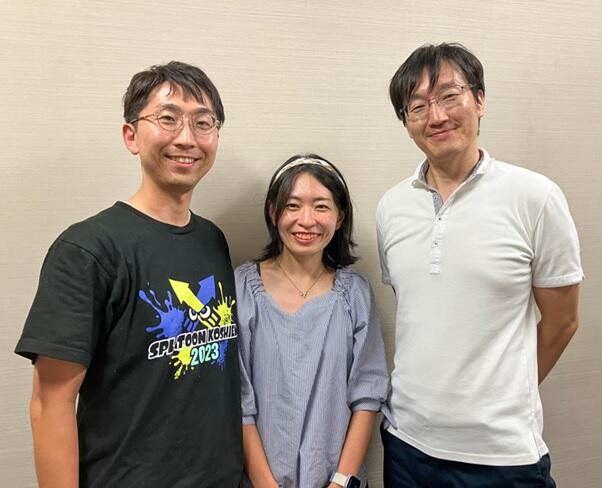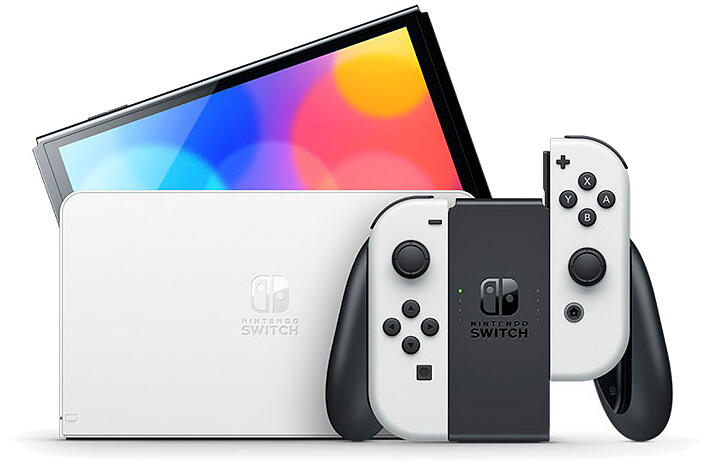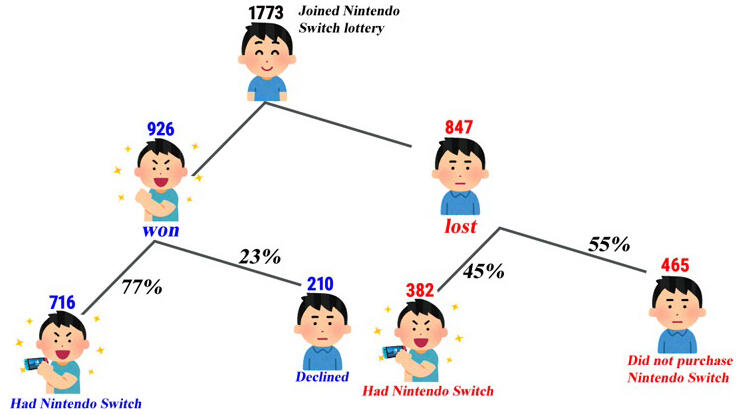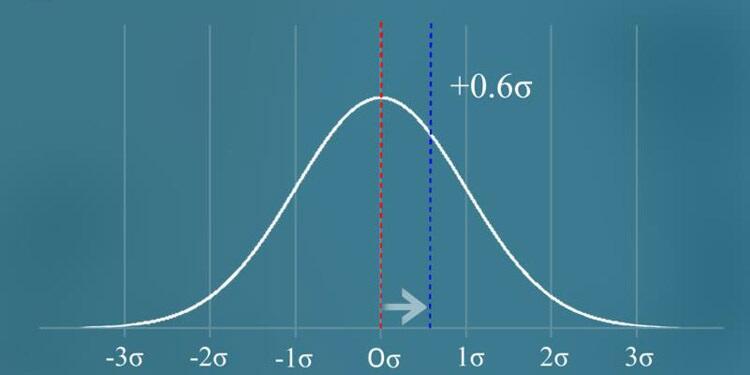According to a research group led by Nihon University's Research Institute of Economic Science, video games have the potential to improve mental health and life satisfaction. The COVID-19 pandemic has prompted lottery sales of home video games. This study sheds light on causal relationships by comparing the lifestyles of people who win lotteries and those who do not. There are many discussions about the health disadvantages of video games on children. However, Hiroyuki Egami, Assistant Professor of Human Behavioral Science at the Institute, says, "Maybe it's all right to look at them positively."
Fights over video game console: An impetus for the research
Hiroyuki Egami is married to Chihiro Egami, a co-researcher and graduate student at the National Graduate Institute for Policy Studies (GRIPS) and have three children. Confined to their home during the pandemic, their children often fought over a video game console. Chihiro Egami suggested, "Purchasing a second console would solve the problem." After the new equipment was purchased, the children squabbled less frequently. To buy the second console, her husband visited an electronics store. There, he was told that there had been a significant increase in demand for video games. They were now being sold by lottery. Hiroyuki Egami was inspired by this idea, thinking "Can't we use this for a large-scale social experiment?"

(September 2024, Shinjuku City, Tokyo Prefecture)
Economics has well-established methods of studying events that occur by lot or by chance and deriving causal relationships. Hiroyuki Egami sought to verify the evidence in various blanket statements. These included: "Using smartphones in child-raising is bad;" "Allowing children to play games for long periods of time can lead to addiction;" and "Gaming increases aggression toward others." Therefore, he decided to use this opportunity to investigate the relationship between gaming and aspects of well-being, such as mental health and life satisfaction.
He approached Tsuyoshi Yamamoto, who was also a graduate student at GRIPS, like Chihiro. He began to think about methods to start a joint research project. In August 2020, Tokyo Governor Yuriko Koike called for restaurants to cooperate by shortening their opening hours.
Determination not to miss the research opportunity, even in the face of opposition to the study design
GRIPS focuses on domestic policies in Japan, as well as human resource development and technical assistance in developing countries. It researches methods to narrow the gaps between developing and developed countries. Yamamoto and Chihiro Egami consulted with researchers around them about methods for the study. Many people told them, "What's the point of doing research that will only benefit a select few?" Their point was that assistance to developing countries should be "broad-shot" effective, such as by distributing mosquito nets to every household as a measure against infectious diseases. Furthermore, other researchers at GRIPS objected, "The proposed study on gaming was angled toward game lovers" and "People's mental health naturally improves if they are doing something that they love."
However, Hiroyuki Egami and his colleagues assumed, "The availability of consoles will be randomly determined by a nationwide lottery" and "People who would not usually participate in such a study will be included in the target population." They believed that they could demonstrate realistic causal relationships in a natural environment. They thought, "If we miss this opportunity, there's no telling when the next 'stay-at-home advisory' will be given." They began the study with a speedy rollout, starting in November 2020.
The goal was to monitor the ongoing lottery-controlled sales of "Nintendo Switch" consoles since March 2020, before people's memories faded. The team discovered that a domestic research company regularly conducts online surveys to measure customer satisfaction with video games, such as the Nintendo Switch and Sony "PlayStation 5 (PS5)." The team collaborated with the company to conduct an online survey to collect and analyze data on lottery-controlled sales.

Over the 3-year period from 2020 to 2022, the survey firm gathered data from 8,192 males and females. They were aged between 10 and 69, and lived in Japan. These 8,192 people had entered the lottery for either the Nintendo Switch or PS5 console, or both. The breakdown shows that 1,773 people participated in the lottery for the Nintendo Switch console. After several rounds, 1,098 people had eventually won the right to buy the equipment. Meanwhile, 6,419 people participated in PS5 lottery, with 1,397 participants winning. More than one-third of the 8,192 people played video games for at least 1.5 hours per day. Of the PS5 winners, approximately 10% played games for over 3 hours per day; the others played for less than 3 hours.

Data provided by Hamamatsu University School of Medicine
Video games help increase happiness and prevent depression
The 8,192 individuals were surveyed using the Kessler psychological distress scale (K6), a scale used to screen for depression and anxiety disorders, and were surveyed on a measure of well-being called "life satisfaction." It was found that those who had won the right to buy a video game and continued to play the game tended to have better indicators than those who did not win the lottery.
The standard deviation of the K6 scale was inspected. The results showed that respondents in households with a Nintendo Switch console scored 0.60 higher than those without a video game. In the case of PS5 consoles, the score was 0.12 points higher. The mental health scores of Nintendo Switch players were 0.81 points better than the non-gaming group. Those of PS5 were 0.20 points better.

Data provided by Hamamatsu University School of Medicine
Closer inspection showed that those who had a Nintendo Switch or PS5 console at home had better mental health than those who did not. Additionally, the average effect was greater for the Nintendo Switch than for the PS5. The study also found that the Nintendo Switch benefited young people to a greater extent. Meanwhile, the PS5 had the most positive impact among adult single men.
Hiroyuki Egami discussed this result. "This difference may be due to the fact that the Nintendo Switch has more software that can be played with the family. It also allows for physical activity. The PS5 has more immersive software and is geared toward hardcore gamers."
On the contrary, we also found that these positive effects diminished as the time spent playing games per day increased. However, the study did not find that people who play games for long periods of time have mental health issues. Hiroyuki Egami said, "People may have the impression that playing games for long periods of time leads to loneliness and withdrawal. But this is not necessarily true."
Personalization of recommended games offers greater happiness
Regarding the series of experiments, Hiroyuki Egami said, "It is difficult to persuade study participants to hold a video game." He recalls, "The COVID-19 pandemic was a really difficult time. Nevertheless, we gained new scientific knowledge by taking advantage of brief opportunities of people 'staying at home' and 'spending time playing games.'" In the future, he hopes to experiment with smartphone games. He plans to investigate how their impact on happiness and mental health varies according to game genre.
Furthermore, Egami noted that "Recommended for you" games are likely to be offered for commercial purposes. He spoke about his plans for future research as follows. "I'd like to build a system to recommend games that will help improve people's well-being, including their mental health."
He also wants to examine the effects of differences in game environments, for example, when playing with family and friends, or individually. There may also be differences between online and offline games.
The present study examined the effects of gaming on mental well-being and health. However, it did not take into account the effects of video games on physical functions such as vision and hearing. This study solely summarizes the results of research and analysis focused on well-being.
The research was supported by a Grant-in-Aid for Scientific Research from the Japan Society for the Promotion of Science and the Telecommunications Advancement Foundation. This joint research project was conducted by Nihon University, Hamamatsu University School of Medicine, Osaka University, Takasaki University of Economics, and GRIPS. Their findings were published in the British scientific journal Nature Human Behaviour on August 20.
Both the Egamis and Yamamoto love to play video games. One of this year's Nobel Prize winners in Chemistry was also fascinated by online games such as Go, which inspired his research. The current stereotype is that "playing games is not good for your mind." However, it is possible that the time comes when people say, "Playing a game will make you a researcher." The games created by Cool Japan can lead to major scientific research achievements.
(TAKIYAMA Nobuyo / Science Portal Editorial Office)
Original article was provided by the Science Portal and has been translated by Science Japan.




